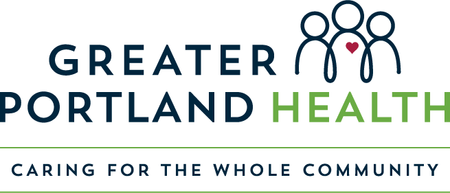
September is National Recovery Month; this observance celebrates those in recovery from mental and substance use disorders. It also aims to educate that those affected can get the treatment and services they need to help support a healthy and satisfactory life.
In accordance with this month we wanted to highlight our Greater Pathways program at Greater Portland Health which works with those affected by substance use disorder. Kelsey Hayes works as a Substance Use Coordinator for the program; she was nice enough to take some time to give an overview of Greater Pathways, talk about her role, as well as explain how the program helps those in recovery from substance use.
1. Can you tell me a little bit about what we do here at Greater Pathways?
Greater Pathways is a comprehensive treatment program which supports those struggling with substance use disorder. Our goal is to engage those in various stages of their recovery, and we have aimed to design our program to do so. We have three locations: Preble Street, Park Ave, and Brickhill. Where one would begin treatment would depend on the level of care they may require at time of initial assessment. Each program aims to treat the whole person and includes primary care, behavioral health, peer support, and medication assisted treatment for opioid use disorder. Something spectacular about Greater Pathways is that regardless of your ability to pay, each location has a place for you.
Our Preble Street location runs a bit differently than the other two locations, and that is to meet the needs of the homeless population. This program is called MARP, or Medication Assisted Recovery Program, and began as a pilot program in November 2017. We were able to partner with Preble Street Resource Center and contract out two case managers to work with patients intensively on housing and other much needed psychosocial support. Our community outreach worker is also an immense support and provides daily harm reduction education, and so much more. The treatment model itself also looks wildly different than other locations in the sense that we see patients daily. This is both for safety and engagement purposes, and though resource and time intensive, has been successful!
2. Can you talk about your specific role within Greater Pathways?
It’s a little bit of everything, and it seems to change every single day depending on the needs of the team. Much of my role is administrative, both for providers and for state and federal tracking purposes. In terms of provider needs, it’s checking urine drug screens and prescription monitoring systems which are both to ensure the safety of the patient. Having educational conversations or providing additional support or resources to the patient is important if there are concerns around their use. Anything I can do to make the program run efficiently: coordinating prescription refills and pickups, weekly meetings, any needs that arise I do my best to support.
I do a lot of tracking for grants, making sure we are adhering to requirements which enable us to continue receiving those funding streams from both federal and state. I receive referrals from community partners, and also complete the intakes for those who are in need of substance use treatment. Assessing their level of care is really just having a conversation, which most are more than open to. A lot of times if we can’t get them in to see a provider immediately, I try to move around some puzzle pieces and reach out to community partners to provide them a prescription until we can get them an appointment here at GPH. Building that trusting relationship is important. Showing them we care and we’re here is important.
3. How does Greater Pathways assist those in recovery?
I may be going a bit off book here, but this is how I’ll choose to answer. The issue with a lot of the recovery community at large is that it leaves major groups of people out: the homeless population, those who are uninsured, those who are still using (anything), those who do not have transportation, I could keep going. There are too many barriers which make recovery a huge obstacle for many people who are eager to regain their lives. It is discriminatory and it is unsafe. What I see in this program is that it aims to break down some of these barriers and welcome all that are seeking a safe and compassionate place for treatment.
For a referral to the Greater Pathways program at Greater Portland Health you can call (207) 874-2141 ext. 8408 or e-mail khayes@greaterportlandhealth.org.
